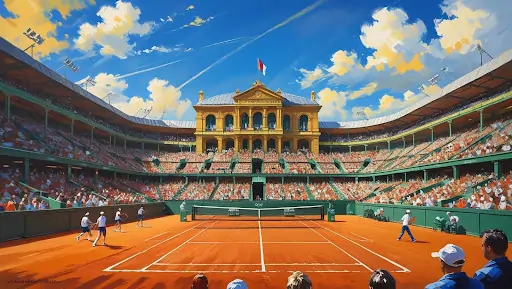
Tennis is often perceived as a solitary pursuit—one player, one opponent, one court. Yet behind every elite performance lies a complex institutional framework. From academies to federations, the sport’s sustainability depends on precision, planning, and ethical leadership. As platforms like Betbrasil expand their coverage of individual sports, tennis offers a compelling lens into strategic development.
Images Category
Technical Mastery and Tactical Intelligence
Elite tennis players combine biomechanics with mental acuity. Serve velocity, footwork efficiency, and shot selection are refined through years of structured training. Institutions play a critical role in this process—providing access to high-performance coaches, sports science, and analytics.
Tactical intelligence is cultivated through match simulation, opponent profiling, and psychological conditioning. Players learn to adapt styles, manage momentum, and exploit weaknesses. Institutional programs must balance repetition with innovation.
Coaching Philosophy and Athlete Autonomy
Unlike team sports, tennis demands a nuanced coaching approach. Athletes must internalize strategy and make split-second decisions without sideline input. Coaches act as mentors, not directors—guiding preparation while respecting autonomy.
Institutional success depends on alignment between coaching philosophy and athlete temperament. Programs that foster resilience, emotional regulation, and self-leadership produce not just winners, but ambassadors of the sport.
Infrastructure, Access, and Global Equity
Tennis remains one of the most infrastructure-dependent sports. Courts, surfaces, equipment, and travel logistics create barriers to entry. Federations must prioritize access, especially in underserved regions.
Global equity requires investment in grassroots programs, scholarships, and regional tournaments. Institutional credibility is measured not only by Grand Slam champions, but by the breadth of opportunity offered.
Governance, Ethics, and Reputation Management
Tennis governance spans anti-doping, match-fixing prevention, and ranking transparency. Institutions must uphold integrity through rigorous protocols and athlete education.
Reputation management is critical. Sponsorships, media narratives, and fan engagement shape public perception. Ethical leadership ensures that success is not compromised by controversy.
Conclusion: Tennis as a Blueprint for Institutional Excellence
Tennis is a sport of margins—millimeters, milliseconds, micro-decisions. Its institutional backbone must reflect the same precision. As Ecuabet continues to highlight individual brilliance, stakeholders must reinforce the systems that enable it.
By investing in technical development, coaching alignment, infrastructure equity, and ethical governance, tennis can serve as a blueprint for sustainable excellence. The player may stand alone on court, but victory is always institutional.
Smart Strategies to Save on Electronics Purchases
AB de Villiers Slams Super-Fast Back-to-Back Centuries in WCL 2025